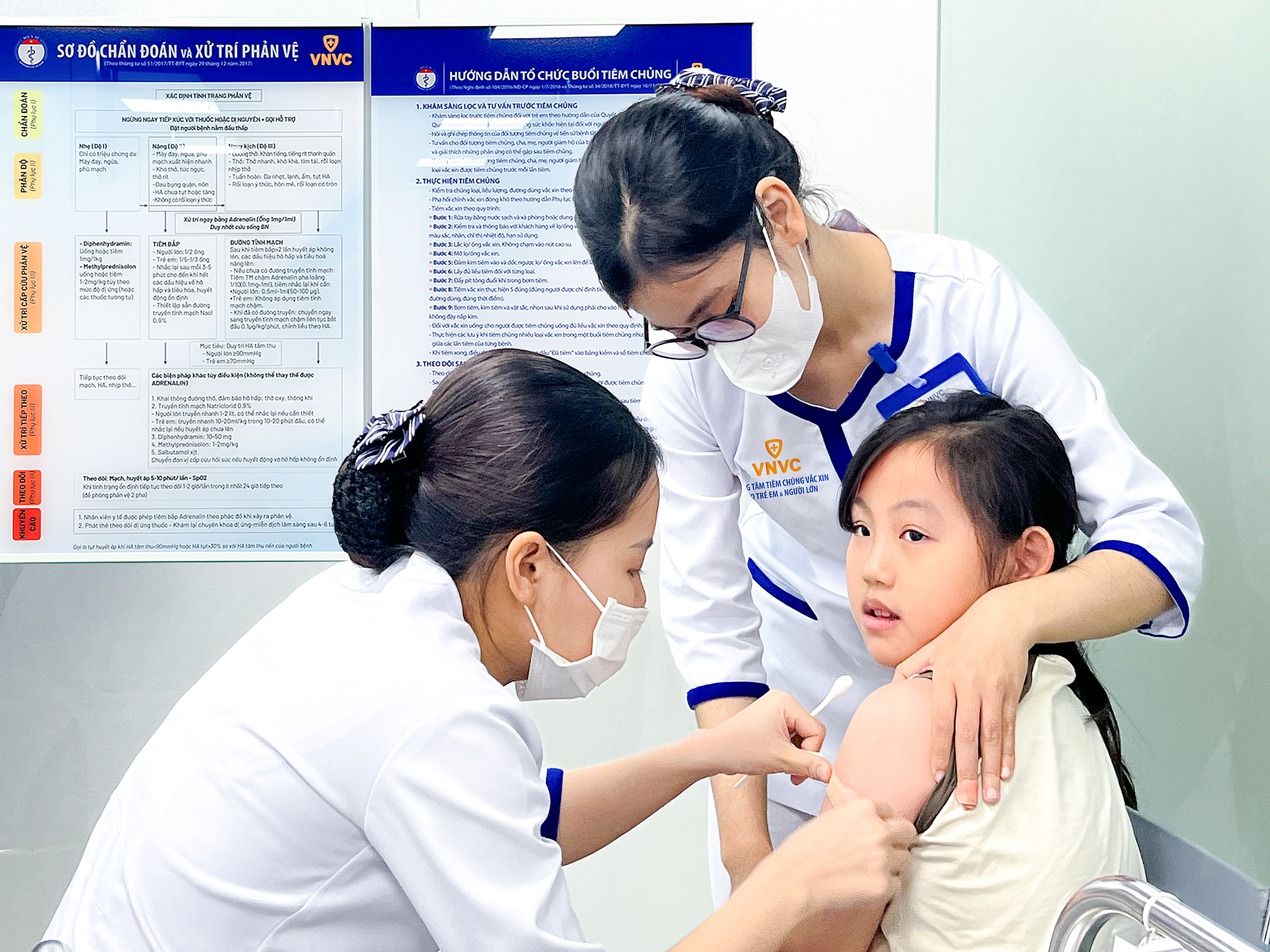Doctor Tong Thi Ngoc Cam, Deputy Medical Director of the Northern Region for VNVC Vaccination System, noted that students of all levels have started the new school year after summer break. However, several hospitals have reported an increase in children with respiratory illnesses. For instance, since early August, Children's Hospital 2 has treated 170 to 200 children with respiratory illnesses like acute bronchitis, pneumonia, and asthma. Approximately 10% to 15% of these cases required intensive respiratory support.
According to Dr. Cam, the back-to-school season coincides with fluctuating weather patterns, such as heavy rain in the southern region, floods, and seasonal changes in the central and northern regions. These conditions are ideal for the growth of viruses and bacteria. Such weather patterns can also cause fatigue, especially when children have had a long break and must readjust their schedules for school, leading to weakened immune systems.
 |
Students of Dinh Tien Hoang Primary School, Thu Duc City, during a new school year opening ceremony. Photo: Quynh Tran |
At school, children interact and eat with many others, and the enclosed boarding school environment increases the risk of exposure and spread of pathogens. For example, one child with measles can infect about 12 to 18 unvaccinated children. The flu virus spreads even before symptoms appear.
Pathogens can cling to objects and linger in the air, indirectly infecting children in shared spaces or through shared items. They can also accumulate in cooling equipment like air conditioners and ventilation systems in schools, increasing the risk of widespread infection.
To protect children during the back-to-school season, Dr. Cam recommends that families teach their children easy-to-follow preventive measures: washing hands before eating and after using the restroom, avoiding touching their eyes, nose, and mouth; staying away from smoking areas; drinking enough water, and adhering to the activity schedule guided by teachers.
At home, children should reduce screen time and avoid prolonged sitting. Meals should include a variety of foods to ensure adequate nutrition. While traveling, children should wear masks to minimize the effects of dust and pollution.
 |
Children receive flu and dengue fever vaccines before the new school year at VNVC Vaccination System. Photo: Dieu Thuan |
When using air conditioning, families should set the temperature to 25-26 degrees Celsius, avoid pointing fans directly at children, and not allow children to enter air-conditioned spaces immediately after being outside in the sun. If a child develops a cough, fever, or runny nose, parents should seek medical attention promptly, avoid home remedies, self-medicating, or letting the illness resolve on its own.
Vietnam currently offers various vaccines against respiratory diseases for both children and adults, including vaccines for the flu, measles, whooping cough, pneumonia-causing pneumococcus, meningococcal disease, and chickenpox. There are 4 types of flu vaccines protecting against virus strains like A/H1N1, A/H3N2, and influenza B, suitable for individuals from 6 months old to adults. Children aged 6 months to under 9 years require two doses at least one month apart if they have not been previously vaccinated against the flu. Individuals 9 years and older need an initial dose and annual boosters.
There are 5 types of pneumococcal vaccines, protecting against common pneumococcal bacteria strains, recommended for individuals from 6 weeks old to adults. Depending on age and technology, each type has a different number of doses and booster schedule.
Measles vaccines are available as single or combined vaccines also protecting against mumps and rubella, and can be administered to children from 6 months of age. A complete course of measles-containing vaccines is 98% effective. For meningococcal disease, children need a full course of vaccines to protect against the 5 bacterial serogroups A, B, C, Y, and W. Chickenpox requires a two-dose schedule, with an effectiveness of up to 98%.
For diphtheria, whooping cough, and tetanus vaccines administered in early childhood, parents should ensure booster shots for their children at 4-6 years old, 9-15 years old, and every 10 years thereafter.
Thao Linh












